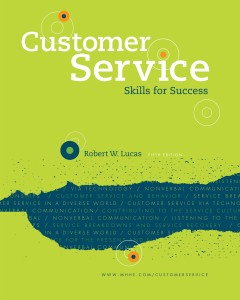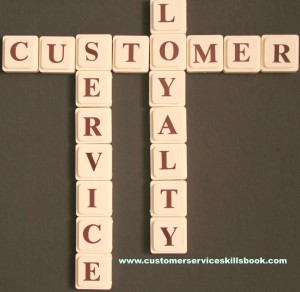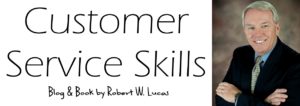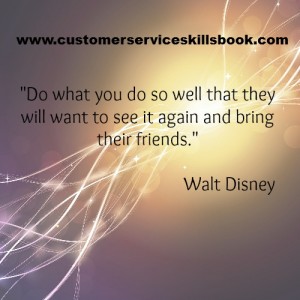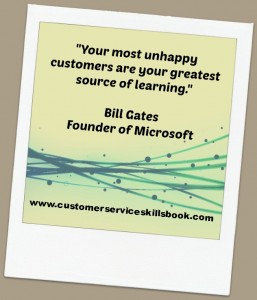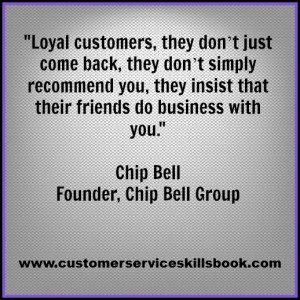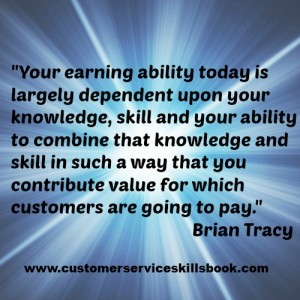The Importance of Customer Service Representatives
in Organizational Success
The business of customer service is all about people. Whether you are the CEO discussing strategic relationships with potential business partners, a salesperson sharing product or service information with a potential customer, a call center representative gathering information from a caller on the phone, or a receptionist greeting a visitor to the organization, they all have one thing in common . . . effective communication is crucial in aiding the exchange of information. Customer satisfaction and successful product and service fulfillment hinge on the abilities of customer service representatives and others in your organization, to transmit and receive messages freely and effectively with current and potential customers. The ultimate goal is to deliver the best customer service possible.
All customer experiences are a combination of people coming together for a common purpose; interacting face to face, via technology, or in writing; and merging individual beliefs, values, and expectations. Depending on the skill and finesse of the service provider, this can mean either a positive or negative outcome.
One variable over which you have little control as a service provider is the emotional state of your customers. When you first encounter someone, you have no idea if he or she is happy, sad, optimistic, angry, vindictive, or in some other frame of mind. That is why you must have an arsenal of interpersonal skills in your service toolbox upon which you can draw. A key element in this equation is the ability to effectively express yourself verbally and to ask appropriate questions, listen, and analyze customer needs, wants, and expectations. You must then take correct and decisive action in order to satisfy the customer.
As a customer service professional, you have the power to make or break the organization. You are the front line in delivering quality service to your customers. Your appearance, actions or inactions, and ability to communicate say volumes about the organization and its focus on customer satisfaction. Additionally, in order to be successful, you need knowledge and skill in communicating verbally, nonverbally, across genders and cultures, and with a variety of personality types. For all these reasons, you should continually work to enhance your knowledge and skills, strive to project a professional image, and go out of your way to make a customer’s visit or conversation with you a pleasant and successful one.
To learn more about the role that customer service representatives play in organizational success and how to create a customer-centric environment that results in brand and customer loyalty, get a copy of the book Customer Service Skills for Success.
About Robert C. Lucas, the expert who is explaining the Importance of Customer Service
Representatives in Organizational Success
Bob Lucas has been a trainer, presenter, customer service expert, and adult educator for over four decades. He has written hundreds of articles on training, writing, self-publishing, and workplace learning skills and issues. He is also an award-winning author who has written thirty-seven books on topics such as, writing, relationships, customer service, brain-based learning, and creative training strategies, interpersonal communication, diversity, and supervisory skills. Additionally, he has contributed articles, chapters, and activities to eighteen compilation books. Bob retired from the U.S. Marine Corps in 1991 after twenty-two years of active and reserve service.
Make Money Writing Books: Proven Profit Making Strategies for Authors by Robert W. Lucas at Amazon.com.
The key to successfully making money as an author and/or self-publisher is to brand yourself and your company and to make yourself and your book(s) a household name. Part of this is face-to-face interaction with people at trade shows, library events, book readings, book store signings, blogging or guest blogging on a topic related to their book(s). Another strategy involves writing articles and other materials that show up online and are found when people search for a given topic related to a topic about which the author has written.
If you need help building an author platform, branding yourself and your book(s) or generating recognition for what you do, Make Money Writing Books will help. Bob’s popular book addresses a multitude of ideas and strategies that you can use to help sell more books and create residual and passive income streams. The tips outlined in the book are focused to help authors but apply to virtually any professional trying to increase personal and product recognition and visibility.



